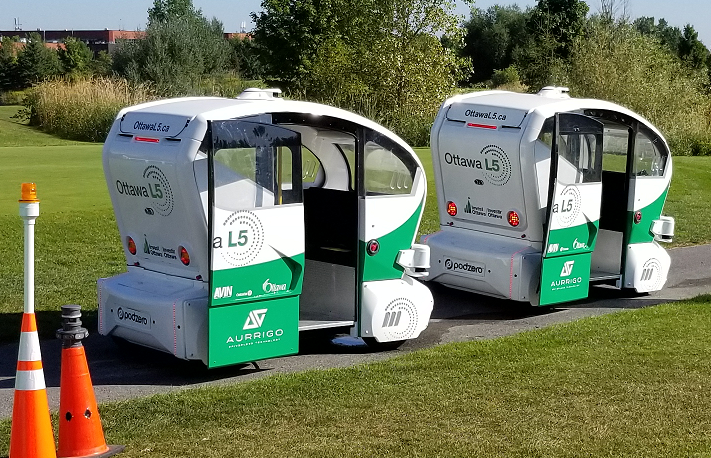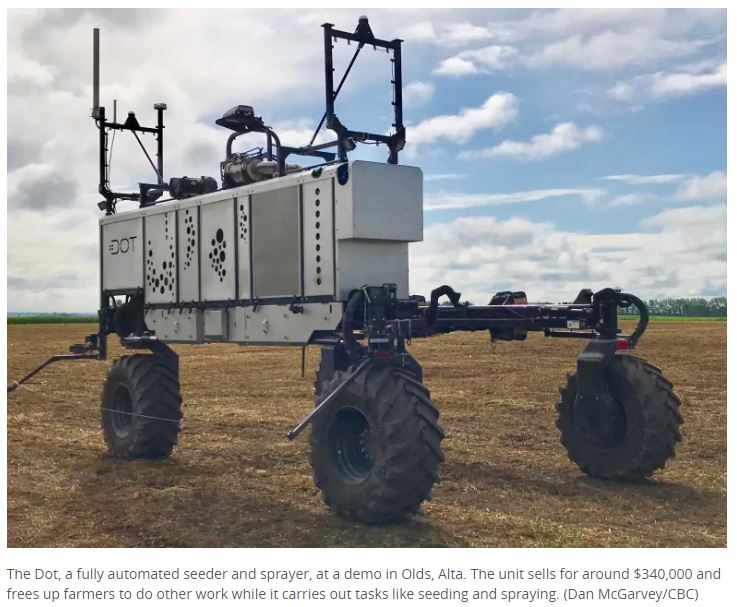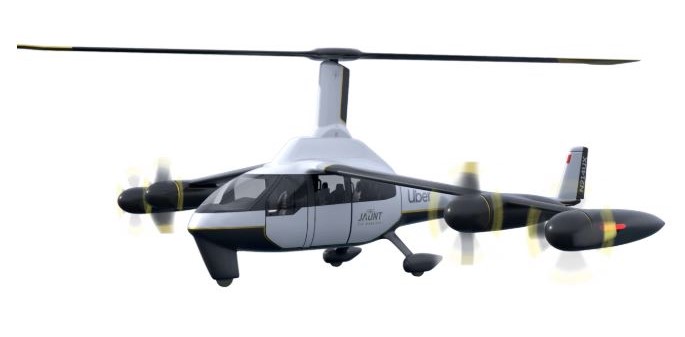
|
August 2019 |
This year's CAV Canada 2019 Conference will be
the biggest and best yet. It will be held on September
9-10, 2019 in Ottawa. CAVCOE is very pleased to
be working with our partners Kanata North Business
Association and Invest Ottawa on this
conference.
60 speakers from Canada and 5 other countries will make
for a great program. Both Ford and GM
are giving keynotes. The speakers include
ACAMP, Aurrigo, Blackberry QNX, CAVCOE, Centre for
Connected and Autonomous Vehicles (Govt of UK), City of
Montreal, City of Ottawa, ENCQOR, Ericsson, Ford,
Innovation Science and Economic Development Canada, MTO,
Nokia, Ontario Centres of Excellence, the US Centre for
Automotive Research, and many others.
The streams focus on technology development /
testing and CAV deployment. There will also be a tour of
the Ottawa L5 test track and a local company.
Thanks to our generous sponsors, advance registration
for the full 2-day conference is only $250-$300. For
full details and to register, click
here.

On Monday August 26, two autonomous Aurrigo
Pods provided rides to 350 people at the
Marshes golf course in Kanata, which is adjacent
to the Kanata North Tech Park. The Ottawa L5
Connected and Autonomous Vehicle (CAV) Test
Facilities led and powered by Invest
Ottawa and the Kanata North Business
Association, launched a trial that enabled
the public to experience a CAV operating in
autonomous mode.
This special event
brought together many key people including the
Mayor of Ottawa, federal, provincial and
local politicians, Sir Terry Matthews,
David Keene (Aurrigo) and members of
the Invest Ottawa and
Kanata North Business Association
teams.
CAVCOE is pleased
and proud to be an ecosystem partner to the
local stakeholders. The detailed media release
is
here.

Saskatchewan-based
DOT Technology is a leader in farm equipment
automation. On August 13-14 and In partnership with
Olds College in Olds, Alberta, DOT demonstrated
their farm equipment automation technology in Old
College’s 2,000-acre smart farm in the two-day
AgSmart showcase. The DOT automated equipment can be
configured for various tasks such as spraying, seed
drilling, fertilizer spreading and a grain cart. The
equipment can reduce costs for farmers and also address
the labour shortage on Canadian farms. More information
is at this
link.

International AV News
Some
experts believe that the advent of autonomous vehicles
could have negative impacts on traditional public
transportation. Several recent studies predict
something different. Their view is that a fleet of
shared electric AVs coupled with high capacity public
transportation may be the best solution. In the most
optimistic scenario, such a scheme may remove 9 out
every 10 cars in a mid-sized European city.
Furthermore, the studies suggest in addition to reducing
congestion, a combined shared AV/high-capacity public
transport network can reduce off-street parking needs by
80% freeing up valuable land for alternative uses. More
information is at
this link. Copy of the 36-page report by
International Transport Forum can be
viewed/downloaded from
this link.
In a somewhat related story, some experts believe that
public transportation in rural areas may be a fertile
ground for automated vehicles. This is particularly
true in rural Japan where public transportation
is scarce and the aging population do not have many
private cars. Add to this the general labour shortage in
Japan and it is easy to see why this might be the case.
The Japanese government has promised to deliver
automated public transportation in rural areas by 2020.
More information is at
this link.
In common with other standard setting organizations, the
British Standards Institute (BSI) has started
work on setting technical standards and guidelines for
the development of AVs in the UK. BSI will initially
focus on standards concerning safety, advanced testing,
data, cybersecurity, CAV infrastructure, human factors
and the deployment of automated vehicle services. More
information is at is
this link.
Another reality check for the AV industry was the recent
announcement by Cruise that it has delayed its
commercial robotaxi service till sometime in 2020. Back
in November 2017, Cruise had set the end of 2019 as the
beginning of its commercial service. Cruise is doing
almost all of its testing in San Francisco using about
180 Chevy Bolt electric vehicles. Cruise has
reportedly attracted investments of US$7.25 billion over
the past year and currently employs about 1,600 people.
More information is at
this link.
In a surprise move, Navya – a leading
manufacturer of autonomous shuttles -- announced that it
will stop building complete autonomous shuttles. In a
change of direction, Navya will focus on developing
self-driving technologies and sensors for third parties,
as well as enter into technology development for freight
transportation. More information is at
this link.
Daimler and Bosch have developed an
automated valet parking system which they claim to be
the first of its kind in the world. Work started in 2015
and a first pilot was implemented in 2017. Bosch
provides the sensors and the infrastructure and Daimler
the vehicles. The automated valet parking is initiated
via a smartphone app and the vehicle is recalled from
its parking spot the same way. More information is at
this link.
Google’s self-driving car unit – Waymo --
is tapping into the expertise of another Google unit –
DeepMind. DeepMind is a leading AI and
machine-learning (ML) company and has developed many
innovate techniques in AI and ML including the concept
of population-based and biological evolution to train
AI-based systems. Similar techniques will now be used to
refine the algorithms for Waymo’s self-driving
vehicles. More information is at
this link.
California’s Department of Motor Vehicles (DMV)
maintains a continuously updated list of all companies
issued a permit for testing their automated vehicles on
California’s public roads. As of August 9, 2019, 63
companies had been issued such permits. Some are well
known companies such as Waymo, Uber,
Lyft and others. Many are little known companies.
To see the current list of the permit holders, visit
this link.
The Emirate of Dubai has been active in
development of automated vehicles. In the run up to its
self-driving Congress in October 2019, it is staging a
competition among some of the AV industry leaders (NAVYA,
EasyMile, GAUSSIN, Westfield, and
2getthere) to test their AVs under real-world
traffic conditions such as obstacles, water sprinklers,
speed humps, and sand-blasting machines. A total of
US$5 million in prize money will be awarded to the
winners. More information is at
this link.
A country’s nuclear authority is not the first place you
think of when considering connected and autonomous
vehicles (CAVs). All the same, the UK’s Atomic Energy
Authority (UKAEA) has announced completion of a new
£5.8m (US$7m) CAV testing facility at Culham Science
Centre in Oxfordshire. With 10km (6.2 miles) of
varied and mixed private roads, as well as more than
2,000 people on-site, Culham Science Centre offers a
unique environment for controlled testing of driverless
vehicles before they travel on public roads. More
information is at
this link.
Uber has been planning an automated air-taxi
service through it Uber Elevate division for a
few years now. To this end, it has partnered with a five
aviation companies (Bell Helicopter, EmbraerX,
Boeing’s Aurora Flight Sciences, Pipistrel
Vertical Solutions, and Karem Aircraft) to
design concept passenger air vehicles (PAV). The latest
such company is New Jersey-based Jaunt Air Mobility.
Uber target is for a PAV with an operating cost of
US$700/hr. The current costs are about US$1,200. Uber
plans to introduce PAVs into Dallas, Los
Angeles and Melbourne, Australia, by 2023.
More information is at
this link.

After the failure of two previous attempts to create
legislation for self-driving cars by the U.S.
Congress, a new initiative hopes to bring this forth
this year. The House Committee on Energy and
Commerce and the Senate Commerce Committee
will work with auto makers, safety groups and other
industry stakeholders for their input on developing a
bipartisan, bicameral self-driving car bill. More
information is at
this link.
Cybersecurity remains one of the main challenges for
connected & autonomous vehicles (CAV). In a recent paper
in the journal Physical Review E by researchers
at Georgia Tech, they demonstrate how attacking
only 20% of vehicles in a place like Manhattan
can cause complete gridlock. This is because of a
physical phenomenon known as Percolation Point. More
information and an explanation of Percolation Point is
at
this link
Upcoming AV-Related Events
Sept 9-10, 2019:
CAV Canada 2019, a national CAV conference organized by
the Kanata North Business Association, Invest Ottawa and
CAVCOE; Brookstreet Hotel, Ottawa
Sept 22-25, 2019:
Joint TAC and ITS Canada conference, Halifax,
Nova Scotia
Sept 22-25, 2019:
IEEE Vehicular Technology Conference, Honolulu, Hawaii
Oct 15-16, 2019:
ITS (UK) Summit, Coventry, England
Oct 15-16, 2019:
World Congress and Challenge for Self-Driving Transport,
Dubai, UAE
Oct 21-25, 2019:
ITS World Congress, Singapore
Oct 22-24, 2019:
Autonomous Vehicle Test and Development Symposium; Novi
MI, USA
Oct 30-Nov 1, 2019:
Unmanned Canada 2019, organized by Unmanned Systems
Canada; Ottawa, Canada
Nov 26-27, 2019
The Future of Transportation World Conference, Vienna,
Austria
Jan 7-10, 2020
CES
2020, Las Vegas NV
Oct 4-8, 2020: ITS World Congress. Los
Angeles
|
AV Update
is a free, monthly roundup of news and analysis in the
world of automated vehicles and their impact on all
levels of government and the private sector.
Chief Editor: Ahmad Radmanesh
Contributor to this issue: Barrie Kirk
To subscribe, click
here.
To unsubscribe, click
here.
We welcome all comments; please send them
here
© CAVCOE 2019
CAVCOE
(formerly the Canadian Automated Vehicles Centre of
Excellence) provides advice to public and private
sector organizations to help plan for the arrival of
self-driving vehicles
|
|